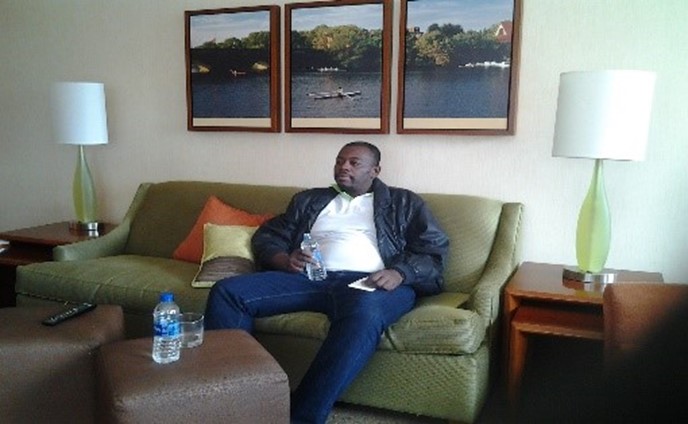Community Voice
Stanford Chimutimunzeve has been with the ACTG since he joined the Harare Parirenyatwa CRS (which is now the Milton Park CRS) in 2007. At that time, he was working for one of the leading local HIV/AIDS service organizations as a community educator/facilitator (and had been since 2004). He was also a youth representative for Harare West Southwest District AIDS Action Committee, a decentralized arm of the National AIDS Council in Zimbabwe. His work focused on HIV prevention, treatment, and care for people living with HIV and he held internationally recognizable HIV/AIDS-specific trainings. The City of Harare Department of Social Services recommended him to be part of the CAB, based on this expertise.
His role in A5418, the monkeypox study, is to provide community input and ensure that community insights are incorporated into the study. He does so by collating input from members of the GCAB, participating in all protocol meetings, and meaningfully contributing a community perspective to ensure the safety of study participants and making sure extra cognizance is given to research ethics. He also works to educate members of the community about monkeypox and to ensure that the study is designed to best answer the research question.
“It was important for me to be part of the study as community scientific sub-committee representative because I represent Africa and other non-U.S. sites and people from resource-constrained settings in particular,” said Stanford. “There is scant knowledge about monkeypox in Africa and I also suspect limited capacity to diagnose. My involvement has a double dividend of awareness raising and advocacy on monkeypox. Africa needs to be prepared and be involved in trials on monkeypox. I also believe that advocacy around post-trial drug access will be a key component if tecovirimat proves to be effective.”
Stanford wants people, especially those from Africa, to know that monkeypox is real and that governments and communities need to be prepared to combat the disease. “I hope the study will be conducted in Africa and also that regulatory authorities will approve studies of this nature so that we continue to save lives across the globe,” he concluded.
